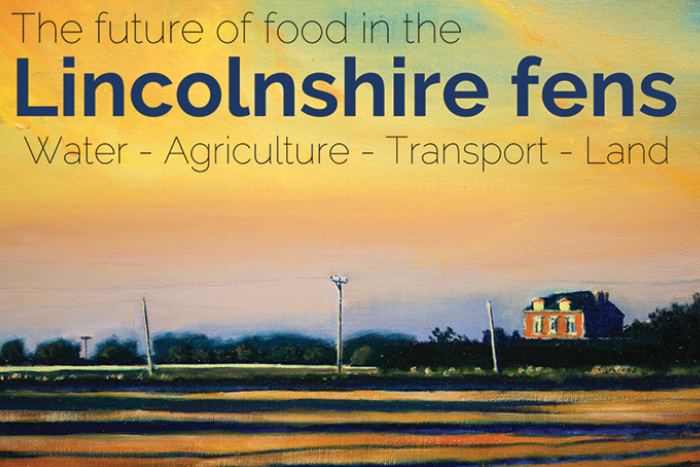
Floods and the food supply
By Laura Stratford
Co-ordinator, Greater Lincolnshire Food Partnership
My great-grandparents’ home and farm were destroyed by the devastating floods that swept the East Coast in 1953. I learned this recently.
They were never able to return to their farm and dirt-floored cottage near Sutton on Sea, which were ruined by saltwater inundation.
It was “a deadly alliance of the wind and sea” in the words of Fenland folk band, Fen Boy 3, who I chanced upon last October at the Guild Session, the monthly live music night on Lincoln High Street - one of Lincoln’s best secret treasures!
Music brought home to me, more deeply than ever before, some of the stories and tragedies of South Lincolnshire’s famously flat landscape, including the drainage of the Fens in the 17th century, which destroyed Fenland livelihoods and ways of life, displacing many from their homes despite fierce and tenacious resistance by local residents.
Today, horticultural production on the drained soil is deeply ingrained in Fenland identity, as well as important to the UK’s food- and nutritional security.
The agricultural landscape of the lowlands is maintained by complex and energy-intensive pumping systems.
But the risk of inundation is very much still with us: twin threats are coastal overtopping and tide locking (when raised sea levels prevent rivers from discharging into the sea), both are exacerbated by rising sea levels and changes in the climate.
Can we avoid the tragedies of 1953 being revisited on our farmland and communities?
And what is the future of food production in the Lincolnshire Fens?
In true Food Partnership style, we brought together a group of people from diverse organisations, involved directly and indirectly in the Fenland food system.
What’s exciting and challenging about this approach is that any issue raised by one person is news to most of the others in the room. And it quickly becomes clear that the “solution” that accompanies any one perspective turns out to be inadequate in the face of the complexity of multiple interacting issues.
At an early stage, the group decided that, because these issues impact on a landscape level, a strategy is needed - one designed, crucially, by those in the region and not imposed from the top down.
Over the past two years, over seven workshops and many dozens of further conversations, the group has explored in depth the many interacting concerns in the Fens, in all their complexity, leading to new understandings of the issues, and allowing new, more robust responses to emerge. These responses will go on to inform a co-designed strategy for the future of food in the Lincolnshire Fens.
On February 11-12, we’ll be telling the stories of that journey, the insights gained on the way, and sharing the draft version of a strategy.
You’d be very welcome to join us, and there’ll be chance to add your thoughts and feedback.
When: Tuesday & Wednesday February 11-12, 10-11:30am (no need to attend both)
Where: Online - a video link will be emailed to you in advance of the event
Cost: Free of charge
